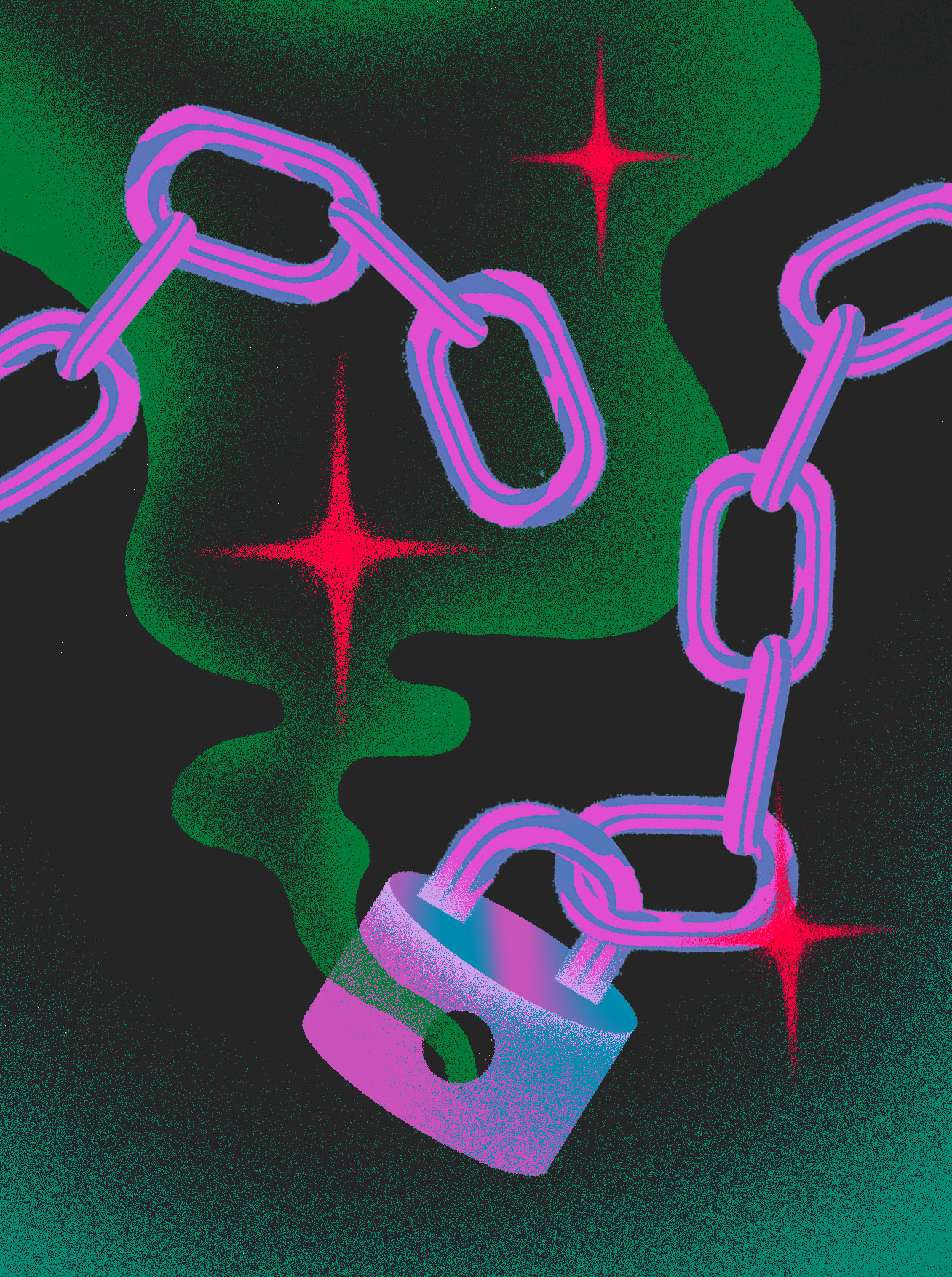According to one recent contract I obtained, customers must “use the system only for the detection, prevention, and investigation of crimes and terrorism and ensure the system will not be used for human rights violations.” They must notify the company of potential misuse. NSO says it has terminated three contracts in the past for infractions including abuse of Pegasus, but it refuses to say which countries or agencies were involved or who the victims were.
“We’re not naive”
Lack of transparency is not the only problem: the safeguards have limits. While the Israeli government can revoke NSO’s license for violations of export law, the regulators do not take it on themselves to look for abuse by potential customers and aren’t involved in the company’s abuse investigations.
Many of the other procedures are merely reactive as well. NSO has no permanent internal abuse team, unlike almost any other billion-dollar tech firm, and most of its investigations are spun up only when an outside source such as Amnesty International or Citizen Lab claims there has been malfeasance. NSO staff interview the agencies and customers under scrutiny but do not talk to the alleged victims, and while the company often disputes the technical reports offered as evidence, it also claims that both state secrecy and business confidentiality prevent it from sharing more information.
The Pegasus logs that are crucial to any abuse inquiry also raise plenty of questions. NSO Group’s customers are hackers who work for spy agencies; how hard would it be for them to tamper with the logs? In a statement, the company insisted this isn’t possible but declined to offer details.
If the logs aren’t disputed, NSO and its customers will decide together whether targets are legitimate, whether genuine crimes have been committed, and whether surveillance was done under due process of law or whether autocratic regimes spied on opponents.
Sunray, audibly exasperated, says he feels as if secrecy is forcing him to operate with his hands tied behind his back.
“It’s frustrating,” he told me. “We’re not naive. There have been misuses. There will be misuses. We sell to many governments. Even the US government–no government is perfect. Misuse can happen, and it should be addressed.”

ARIEL DAVIS
But Sunray also returns to the company’s standard response, the argument that underpins its defense in the WhatsApp
lawsuit: NSO is a manufacturer, but it’s not the operator of the spyware. We built it but they did the hacking–and they are sovereign nations.
That’s not enough for many critics. “No company that believes it can be the independent watchdog of their own products ever convinces me,” says Marietje Schaake, a Dutch
politician and former member of the European Parliament. “The whole idea that they have their own mechanisms while they have no problem selling commercial spyware to whoever wants to buy it, knowing that it’s used against human rights defenders and journalists–I think it shows the lack of responsibility on the part of this company more than anything.”
So why the internal push for more transparency now? Because the deluge of technical reports from human rights groups, the WhatsApp lawsuit, and increasing governmental scrutiny threaten NSO’s status quo. And if there is going to be a new debate over how the industry gets regulated, it pays to have a powerful voice.
Growing scrutiny
Lawful hacking and cyber-espionage have grown enormously as a business over the past decade, with no signs of retreat. NSO Group’s previous owners bought the company in 2014 for $130 million, less than one-seventh of the valuation it was sold for last year. The rest of the industry is expanding too, profiting from the spread of communications technology and deepening global instability. “There’s no doubt that any state has the right to buy this technology to fight crime and terrorism,” says Amnesty International’s deputy director, Danna Ingleton. “States are rightfully and lawfully able to use these tools. But that needs to be accompanied more with a regulatory system that prevents abuses and provides an accountability mechanism when abuse has happened.” Shining a much brighter light on the hacking industry, she argues, will allow for better regulation and more accountability.
Earlier this year Amnesty International was in court in Israel arguing that the Ministry of Defense should revoke NSO’s license because of abuses of Pegasus. But just as the case was starting, officials from Amnesty and 29 other petitioners were told to leave the courtroom: a gag order was being placed on the proceedings at the ministry’s urging. Then, in July, a judge rejected the case outright.
“I do not believe as a matter of principle and as a matter of law that NSO can claim a complete lack of responsibility for the way their tools are being used,” says United Nations special rapporteur Agnes Callamard. “That’s not how it works under international law.”
Callamard advises the UN on extrajudicial executions and has been vocal about NSO Group and the spyware industry ever since it emerged that Pegasus was being used to spy on friends and associates of Khashoggi shortly before he was murdered. For her, the issue has life-or-death consequences.
If NSO loses the WhatsApp case, one lawyer says, it calls into question all those companies that make their living by finding flaws in software and exploiting them.
“We’re not calling for something radically new,” says Callamard. “We are saying that what’s in place at the moment is proving insufficient, and therefore governments or regulatory agencies need to move into a different gear quickly. The industry is expanding, and it should expand on the basis of the proper framework to regulate misuse. It’s important for global peace.”
There have been calls for a temporary moratorium on sales until stronger regulation is enacted, but it’s not clear what that legal framework would look like. Unlike conventional arms, which are subject to various international laws, cyber weapons are currently not regulated by any worldwide arms control agreement. And while nonproliferation treaties have been suggested, there is little clarity on how they would measure existing capabilities, how monitoring or enforcement would work, or how the rules would keep up with rapid technological developments. Instead, most scrutiny today is happening at the national legal level.
In the US, both the FBI and Congress are looking into possible hacks of American targets, while an investigation led by Senator Ron Wyden’s office wants to find out whether any Americans are involved in exporting surveillance technology to authoritarian governments. A recent draft US intelligence bill would require a government report on commercial spyware and surveillance technology.
The WhatsApp lawsuit, meanwhile, has taken aim close to the heart of NSO’s business. The Silicon Valley giant argues that by targeting California residents–that is, WhatsApp and Facebook–NSO has given the court in San Francisco jurisdiction, and that the judge in the case can bar the Israeli company from future attempts to misuse WhatsApp’s and Facebook’s networks. That opens the door to an awful lot of possibilities: Apple, whose iPhone has been a paramount NSO target, could feasibly mount a similar legal attack. Google, too, has spotted NSO targeting Android devices.
And financial damages are not the only sword hanging over NSO’s head. Such lawsuits also bring with them the threat of courtroom discovery, which has the potential to bring details of NSO’s business deals and customers into the public eye.
“A lot depends on exactly how the court rules and how broadly it characterizes the violation NSO is alleged to have committed here,” says Alan Rozenshtein, a former Justice Department lawyer now at the University of Minnesota Law School. “At a minimum, if NSO loses this case, it calls into question all of those companies that make their products or make their living by finding flaws in messaging software and providing services exploiting those flaws. This will create enough legal uncertainty that I would imagine these would-be clients would think twice before contracting with them. You don’t know if the company will continue to operate, if they’ll get dragged to court, if your secrets will be exposed.” NSO declined to comment on the alleged WhatsApp hack, since it is still an active case.
“We are always spied on”
In Morocco, Maati Monjib was subjected to at least four more hacking attacks throughout 2019, each more advanced than the one before. At some point, his phone browser was invisibly redirected to a suspicious domain that researchers suspect was used to silently install malware. Instead of something like a text message that can raise the alarm and leaves a visible trace, this one was a much quieter network injection attack, a tactic valued because it’s almost imperceptible except to expert investigators.
On September 13, 2019, Monjib had lunch at home with his friend Omar Radi, a Moroccan journalist who is one of the regime’s sharpest critics. That very day, an investigation later found, Radi was hit with the same kind of network injection attacks that had snared Monjib. The hacking campaign against Radi lasted at least into January 2020, Amnesty International researchers said. He’s been subject to regular police harassment ever since.
At least seven more Moroccans received warnings from WhatsApp about Pegasus being used to spy on their phones, including human rights activists, journalists, and politicians. Are these the kinds of legitimate spying targets–the terrorists and criminals–laid out in the contract that Morocco and all NSO customers sign?
In December, Monjib and the other victims sent a letter to Morocco’s data protection authority asking for an investigation and action. Nothing formally came of it, but one of the men, the pro-democracy economist Fouad Abdelmoumni, says his friends high up at the agency told him the letter was hopeless and urged him to drop the matter. The Moroccan government, meanwhile, has responded by threatening to expel Amnesty International from the country.
What’s happening in Morocco is emblematic of what’s happening around the world. While it’s clear that democracies are major beneficiaries of lawful hacking, a long and growing list of credible, detailed, technical, and public investigations shows Pegasus being misused by authoritarian regimes with long records of human rights abuse.
“Morocco is a country under an authoritarian regime who believe people like Monjib and myself have to be destroyed,” says Abdelmoumni. “To destroy us, having access to all information is key. We always consider that we are spied on. All of our information is in the hands of the palace.”


